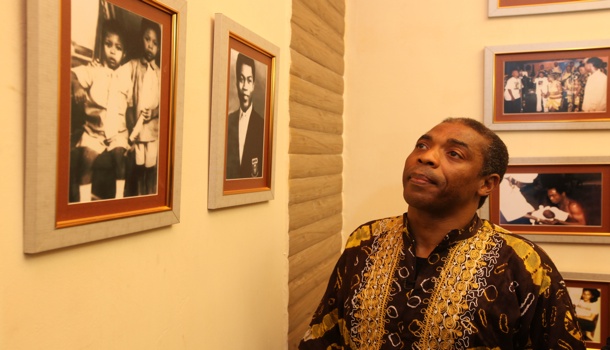
MAIDUGURI, Nigeria (AP) — More than 60 Nigerian girls and women abducted by Islamic extremists two weeks ago have managed to escape, officials said Monday.
Nigerian security forces and federal government officials had denied reports of the mass abduction from three villages in the northeast state of Borno on June 22.
Chibok local government chairman Pogu Bitrus said Monday he had verified that about 60 women and girls escaped on Thursday and Friday by sending a representative who met with some of the escapees and their families at the hospital in Lassa, a town in the neighboring Damboa local government area.
Vigilante leader Abbas Gava in Maiduguri, capital of Borno state, said Sunday that vigilantes in the area told him 63 women and girls managed to get away on Friday while their captors were engaged in a major attack on a military barracks and police headquarters in Damboa town.
Small-scale kidnappings by Boko Haram extremists had been going on for months when they drew international condemnation for the abductions of more than 200 schoolgirls from a school in Chibok town of Borno state on April 15. Some 219 of those girls still are missing.
The government and military failure to rescue them has attracted criticism at home and abroad.
Boko Haram is demanding the release of detained fighters in exchange for the girls. Nigeria’s President Goodluck Jonathan reportedly has refused to consider a prisoner swap.
Amid the stalemate, Bitrus said that attacks have increased around Chibok and that Boko Haram has taken over some villages in the area and is threatening to take over others. The Kibaku Area Development Association, a local residents’ association of which he is also chairman, reported that 19 villages have been attacked since the April 15 abductions, with more than 229 people killed and about 100 seriously wounded.
In 90 percent of cases, there had been advance warning of the attacks — as happened in the Chibok kidnappings — yet the military had taken no action, the association said in a statement Friday.
“Security and defense is mainly provided by the local vigilante (who are ill-equipped) and the police while the soldiers in Chibok sit by and watch villagers being helplessly massacred in their homes, farms and in places of worship,” the association said in a statement.
The association called for help from the United Nations.
“The inability or unwillingness of the federal government to provide adequate security to Chibok (Kibaku) nation following the abduction of the girls leaves us with no option than to call on the United Nations to use its apparatus to come to our aid and protect us from the imminent annihilation as a people,” the statement said.
The Associated Press had originally quoted witnesses and a local official reporting that about 90 people including about 30 boys had been kidnapped from three villages on June 22. A police officer later told The Associated Press that they had conducted an investigation at the insistence of the Borno state governor and had reported that 71 women and girls were abducted, but no males. The officer, who spoke on condition of anonymity because he is not allowed to give information to reporters, said that report never was published because of the official denial that any kidnapping had taken place.
Some officials also had questioned the mass abduction of the Chibok girls, which was confirmed last month by a presidential investigating committee.
More than 2,000 people have died so far this year in the 5-year-old Islamic uprising, compared to an estimated 3,600 in the four previous years.
__
Faul reported from Lagos, Nigeria.


